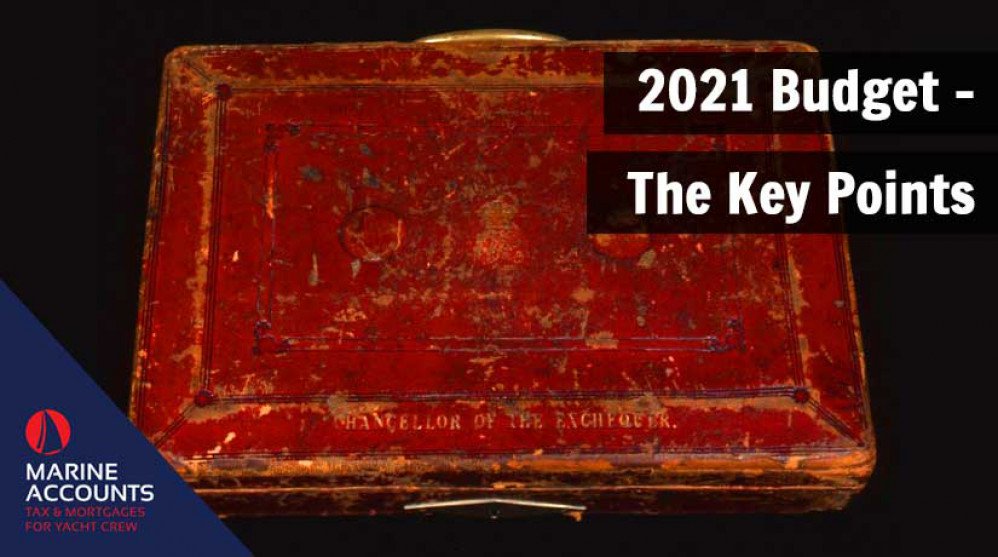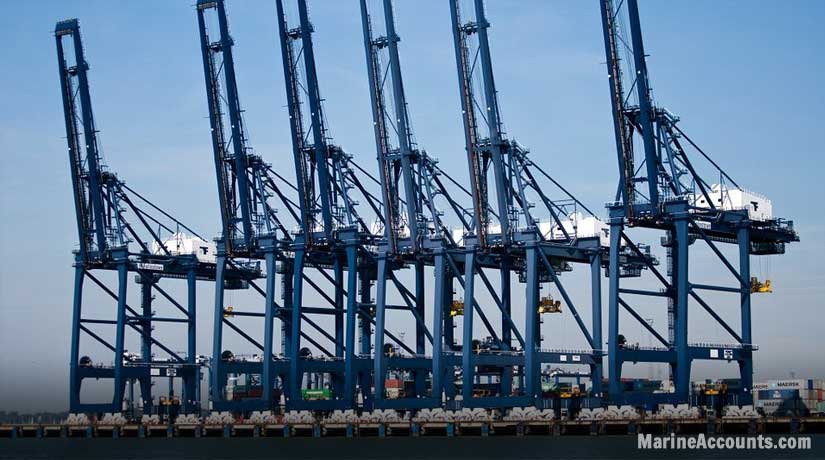2021 Budget - The Key Points
- Authors
-
-

- Name
- Patrick Maflin
-

Image source: https://commons.wikimedia.org/wiki/File:Cropped_Gladstone's_Red_Box.jpg
Since the delay to the Chancellor’s autumn budget announcement in light of the pandemic, individuals and businesses have been waiting in trepidation.
Rishi Sunak’s announcement has now shed light on how the government plans to aid the economy as it recovers from the shock of Coronavirus, which has catapulted the UK into its deepest recession on record.
Despite civil liberties still being subject to harsh restrictions, the UK has been presented with a light at the end of the pandemic tunnel.
With the vaccination march gathering pace, and the Prime Minister’s 'roadmap' out of restrictions now unveiled, citizens of the UK have a hopeful outlook for the months ahead.
It was therefore an ideal time for the Chancellor of the Exchequer to unveil his forthcoming plans for the economy.
Thanks to the Conservative’s 'triple tax lock', which Rishi Sunak has pledged to uphold, individuals will not see an increase in income tax, national insurance, or value added tax in the 2021 budget.
Whilst this is undoubtedly positive news for taxpayers, Sunak is still confronted with the task of narrowing the government’s budget deficit which has sprawled uncontrollably throughout the past 12 months.
It was revealed in Sunak’s budget that the total government response to Covid will total £407bn.
As such, the Chancellor was presented with a troubling dilemma.
His budget needed to attempt to recoup some of the vast outgoings that the government has endured over the past year whilst simultaneously avoiding hampering economic growth on the road to recovery.
The commitment to the Conservative’s 'triple tax lock' may seem like a victory, however Sunak has been forced to deploy other means at his disposal to increase the government’s tax receipts.
Read on to discover the key points from the Chancellor’s budget announcement on 3rd March.
Chapters
The Key Points
The latest budget announcements can be split into two tranches.
Firstly, a wide range of new measures were introduced with the aim of supporting individuals and businesses as restrictions slowly ease throughout the coming months.
The second facet of Sunak’s budget outlined the plans for the future recovery of the UK in years to come.
The key points of how the Chancellor will support individuals and the economy as it reopens are as follows:
- The furlough scheme which is currently due to expire at the end of April, will be extended until the end of September. Employers will be asked to contribute 10% in July and 20% in August and September.
- The stamp duty holiday has been extended to the end of June, with the stamp duty threshold increasing to £250,000 until the end of September.
- More people can now claim the Self-Employed Income Support Scheme (SEISS), provided that they have submitted a 2019/20 tax return. This means 600,000 more self-employed individuals will be eligible for grants.
- A £20 per week uplift in universal credit will remain in place until the end of September.
- The national minimum wage will be increased to £8.91 per hour from April 6th.
- £5bn of business grants announced to aid reopening over the coming months. Non-essential retail business will be given grants of up to £6,000 per premises, whilst hospitality and leisure businesses, which were worst affected, will receive grants of up to £18,000.
- Business rates holiday will be extended until the end of June, and then cut by two-thirds for the rest of the year.
- Hospitality and tourism sectors will continue to benefit from a VAT cut, which will remain in place until the end of September. VAT will then be increased to 12.5% for six months before returning to 20%.
- Alcohol and fuel duties remain frozen for the second and eleventh consecutive years respectively.
New Measures

Image source: https://pixabay.com/photos/felixstowe-container-port-port-380439/
Meanwhile, the Chancellor also announced the following measures that will be introduced once restrictions have been lifted:
- Corporation tax will increase to 25%, up from 19%, in 2023. However, companies with profits of less than £50,000 will only be required to pay 19%, equating to about 1.5 million companies.
- Individuals’ personal tax allowance will rise to £12,570 and the higher-rate tax threshold will rise to £50,270, before both are frozen until 2026.
- Help-to-buy scheme announced whereby the government will guarantee mortgages with loan-to-value ratios of 95%. HSBC, Santander, Lloyds, NatWest and Barclays will begin offering these mortgages from next month, with more to follow in due course.
- Never-before-seen 'Super Deduction' offered to firms to stimulate business investment. Companies will be able to reduce their tax liabilities by 130% of the cost of their investment.
- 8 locations chosen to host 'freeports', which Sunak describes as "special economic zones to make it easier and cheaper to do business". These zones feature tax incentives and less planning legislation. The zones chosen are: East Midlands Airport, Felixstowe and Harwich, Humber, Liverpool, Plymouth, Solent, Thames, and Teesside.
- £12bn initial capitalisation for the UK’s infrastructure bank, which will support projects working towards the green industrial revolution.
Conclusion
This long-awaited budget announcement from Rishi Sunak has outlined the government’s strategy for aiding a post-pandemic recovery.
Whilst the Chancellor has continued his generosity of the last 12 months in the form of support mechanisms for individuals and businesses, this generosity was destined to come to an end eventually.
Sunak’s budget succeeded in appeasing a wide range of stakeholders with various tax reliefs, stimulus and incentive packages to keep the economy afloat as it reopens.
However, some business groups are disappointed that despite their suffering of the past 12 months they are set to suffer further as a result of the corporation tax hike set for 2023.
We will all be watching eagerly as the economy emerges from the dark cloud of Covid.
Contact Us
If you are concerned about how your circumstances may be impacted by any of the new policies, our specialist team will be happy to help.
Simply get in touch with us today or let us know your thoughts in the comments section below.
Any advice in this publication is not intended or written by Marine Accounts to be used by a client or entity for the purpose of (i) avoiding penalties that may be imposed on any taxpayer or (ii) promoting, marketing or recommending to another party matters herein.


